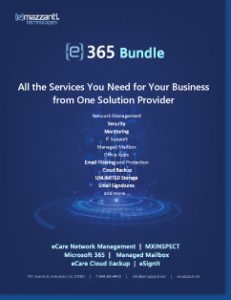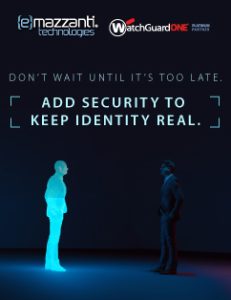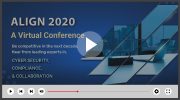|
 How to Take a Practical Approach to Security How to Take a Practical Approach to Security
If your small business is like many, it is extremely dependent upon technology and electronically stored data. Many of the steps you need to take to secure your information infrastructure won’t cost your business money, or even much time. Here are some practical considerations and security precautions you should take to maintain the security of your information assets.
Use strong passwords
A strong password is at least eight characters and includes a combination of lowercase and uppercase letters, digits, and symbols. Require users to employ a different password for each service or system they are accessing, and make sure everyone changes passwords every 45-60 days. Also, do not write down passwords and leave them lying out in the open.
Be a smart email user
Email is fraught with potential security risks n fact, most security threats are spread by email. Even if you have an antivirus solution in place, occasionally an infected message will get through. To avoid infection, never use the preview pane function in your email program, never open attachments in emails from unknown senders, and even if you recognize the sender, you should still scrutinize the attachments before opening. If the attachment ends in an unusual extension do not open it. Spam is also a prevalent problem and for that reason, you should never open junk mail. Do not reply to unsolicited emails, even if you are trying to unsubscribe this only lets the spammers know that you have successfully received their message so they will continue to send more spam. Also, be on the lookout for phishing, scams, emails that look like legitimate messages from places such as banks that try to get you to divulge your personal information. Do not perpetuate spam by forwarding virus warnings and chain letters you receive-via email.
Be alert when browsing the Web
Enable the security settings on your Web browser you can usually find these settings in the Preferences menu. Do not enable file sharing, and be very cautious when giving out personal information online. And whatever you do, do not click on any pop-up advertisements.
Use Antivirus software
Antivirus software is still the best way to stay protected against today’s viruses, worms, and Trojan horses. Antivirus software should be installed on all servers, desktops, and laptops including devices used to make remote connections to your network. You should check for new virus definitions daily, and also perform weekly system scans.
Use a Firewall
Without a firewall, you are putting your sensitive information at risk. Be sure to use a network firewall, and also install a personal firewall on each computer. Make sure any remote devices are equipped with a firewall because they will not be protected by the network firewall. Firewalls are available as software or hardware, and although they perform almost the same function, every small business should have both kinds.
Backup and restore
A consistent backup and preservation system should be in place. Someone in your business should be made responsible for backing up your vital data daily. In addition, backups should be made on servers and on users’ hard disks and make sure remote users need to back up their devices as well. Verify your backup system is working correctly by regularly testing to see if information can be restored from the backup copy.
Stay up to date with patches and software
Every desktop, laptop, and handheld used at the office and remotely should be up to date with the most current operating system versions, software product versions, and appropriate service packs. Most operating systems will allow you to enable automatic searches for new updates.
Encrypt and “hide” your wireless network
Secure the connection between your wireless network and the ordinary network with a VPN, and install a firewall at the wireless access point. When configuring your access point, disable your SSID from being broadcast that will essentially “hide” your network. Enable Wi-Fi Protected Access (WPA). WPA encrypts any wireless data that is transmitted, and prohibits eavesdropping. Avoid using older systems with less protection, such as Wired Equivalent Privacy (WEP).
Secure your remote connections
A virtual private network (VPN) will create a secure “tunnel” into the network, and maintain the privacy and integrity of your data as it travels across the Internet, authorizing the user and encrypting your information. In addition, remote computers must be equipped with antivirus and personal firewall software. Keep the amount of important information saved and stored on remote computers to a minimum, and back up the data regularly.
Additional security measures
-
Here are some easy and recommended best practices to keep in mind:
-
Use the screen-locking feature that many operating systems offer whenever you leave your computer, even if it’s for a few minutes.
-
Always log off and shut down your computer when you leave for the day.
-
Never leave your wireless equipment unattended in public or when traveling and use a cable lock to keep your laptop locked when in the office.
Keep track of who has keys and access to valuable computer equipment at your office, keep backups in a secured location, and consider getting a security alarm for your business if you do not already have one.
|


 How to Take a Practical Approach to Security
How to Take a Practical Approach to Security










